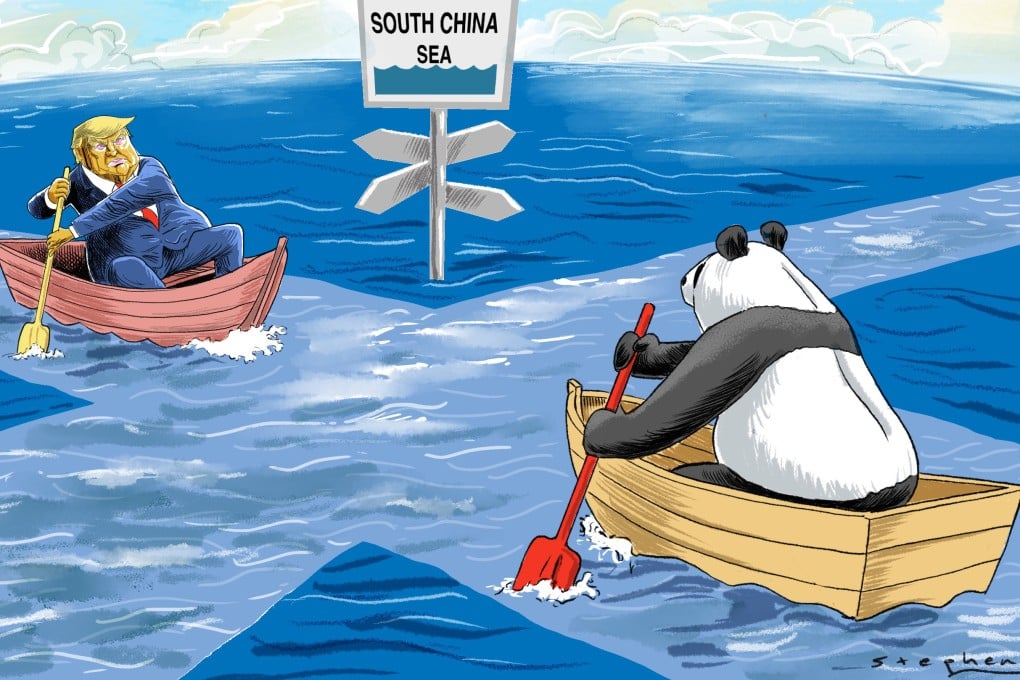Advertisement
Opinion | How Trump could upend South China Sea calculations all round
Trump’s transactional diplomacy risks complicating the hedging of stakeholders from Philippines to Vietnam, and adding unpredictability for China
Reading Time:3 minutes
Why you can trust SCMP
5

The South China Sea has long been a stage for US-China rivalry, its critical shipping lanes, rich resources and competing territorial claims making it a geopolitical flashpoint.
Last year, tensions escalated as China intensified its actions in the disputed waters, including announcing baselines around Scarborough Shoal and stepping up reef patrols. Simultaneously, the United States maintained its freedom of navigation operations, signalling support for regional allies and challenging Beijing’s territorial assertions.
The South China Sea faces renewed challenges this year, driven by Donald Trump’s return as US president. Trump’s approach during his first term prioritised a transactional style of diplomacy, increasing freedom of navigation operations while fostering ties with regional allies like the Philippines. But this strategy often lacked consistency, as his focus on trade deals with China sometimes overshadowed security concerns. Trump’s return could see the South China Sea potentially used as a bargaining tool in negotiations with Beijing.
Advertisement
China is likely to be bracing for a more unpredictable US approach under Trump. Beijing’s South China Sea actions are a mix of assertiveness and calculated restraint. Last year, it submitted Scarborough baselines to the United Nations while reinforcing its maritime presence and showcasing its growing naval capabilities in a counterbalance to US freedom of navigation operations.
But China also sought to manage tensions through diplomacy, including regional security dialogues and negotiations with the Association of Southeast Asian Nations for a South China Sea code of conduct. By prioritising bilateral deals over multilateralism, Trump could upset Beijing’s strategic calculations.
As a central party to the South China Sea disputes, the Philippines faces both internal and external pressures. Internally, Vice-President Sara Duterte-Carpio’s feud with President Ferdinand Marcos Jnr has exposed fractures within the government, which could undermine its ability to formulate coherent foreign policy.
Advertisement
Select Voice
Select Speed
1.00x

